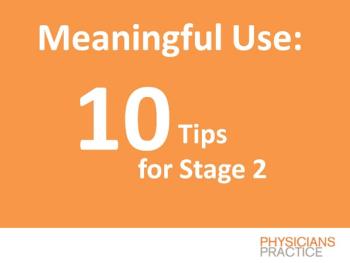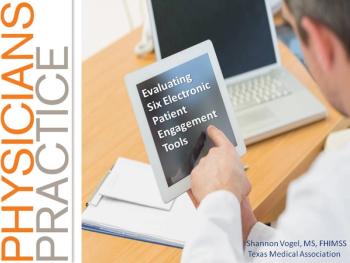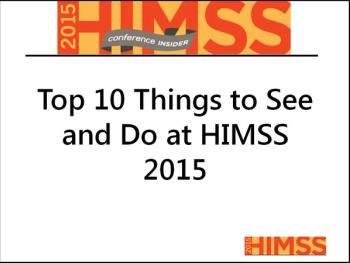
Managing an ongoing relationship with your EHR vendor takes time, but it is well worth it. Here are some tips on managing this key relationship.

Managing an ongoing relationship with your EHR vendor takes time, but it is well worth it. Here are some tips on managing this key relationship.

Communication with your EHR vendor is essential during the implementation and go-live period. Here are some tips to keep your practice connected.

Consultants and health IT experts share their top advice for physicians participating in the EHR incentive program.

Research indicates there are four keys to successful EHR adoption. Here's how to implement them at your medical practice.

CMS has identified three areas of the proposed Stage 3 rule that could make meeting meaningful use simpler for physicians.

More malpractice cases relating to physicians' EHR use are occurring. Here's what to do to ensure such a problem does not happen to you.

Like every computer system, each EHR creates its own virtual reality. The danger stems from mistaking this "virtual" reality for actual "reality."

Physicians and patients share feedback regarding how patient access to physician notes affects work flow, engagement, and patient care.

The demands of unproven quality measures create a constant stream of paperwork and erode the essential foundation of the doctor-patient relationship.

Electronic patient engagement tools are great to connect physicians and patients, but they also come with challenges.

One physician explores the "dance of documentation" between physician, patient, and EHR; and a potential new partner: the medical scribe.

Physician engagement in health IT selection and implementation is "a must," says a fellow physician. Here's how to make it a reality at your practice.

When attesting to meaningful use, be sure you are truthful about your HIPAA compliance efforts. Otherwise, you could risk being audited.

Make the most out of the HIMSS15 Conference with these 10 tips of things you can't miss in Chicago.

Use smart design choices to seamlessly integrate your EHR into your medical practice, and into the patient visit itself.

From small changes to big fixes, here's how to adjust your medical design to boost patient satisfaction and staff efficiency.

Despite delays, ICD-10 demands superior technology now. Here's how to know if your vendor is your partner or an obstacle as the transition nears.

Are medical scribes the solution to your EHR headaches? We asked practice management consultants to weigh in.

Training a medical practice staff member to serve as a scribe has several benefits, but only if you go about it the right way.

Our fragmented, disconnected, crisis-based medical system where doctors bear no consequence for cost, but liable for everything, is a wasteful money pit.

The ability to document in the EHR is a blessing and a curse. My fear is to produce a note that has a lot of words, but says nothing of substance.

Under the proposed rule, all providers, regardless of prior program participation, would attest to Stage 3 in 2018. Here's what that means for physicians.

Here are a few of the objectives and measures in the Stage 3 proposed rules to meet meaningful use that could be most challenging for physicians.

Have you had a chance to read through the proposed rule for Stage 3 of the government's EHR incentive program? If not, we've got you covered.

Once implemented, EHRs don't run automatically. You have to train staff prior to and after integrating a new system to ensure a smooth transition.